DIGITAL FILMMAKING & PHOTOGRAPHY
PHILM IN 8 SEMESTERS
| 01 FRESHMAN |
||||
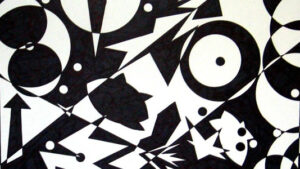 2-D art 1100 |
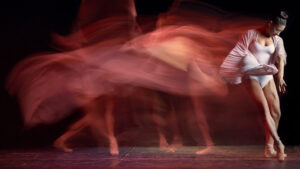 FNDATION FNDATIONart 1300 |
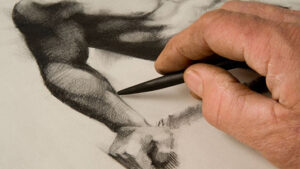 DRAW1 DRAW1art 1106 |
 WEST ARHI |
 GEN ED |
| 02 FRESHMAN |
||||
 PHILM art 2105 |
 3-D art 1200 |
 DRAW2 DRAW2art 1206 |
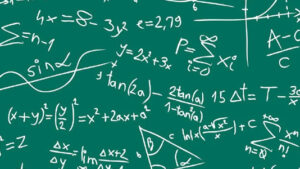 GEN ED |
 GEN GENED |
| 01 SOPHOMORE |
||||
 PHILM studio |
 PHILM PHILMstudio |
 PHILM PHILMart 2005 |
 NON-WEST ARHI |
 GEN ED |
| 02 SOPHOMORE |
||||
 PHILM studio |
 PHILM studio |
 DSIGN DSIGNart 258 |
 GEN ED |
 GEN GENED |
| 01 JUNIOR |
||||
 PHILM PHILMcognate |
 2-D 2-Delect |
 ART ARTelect |
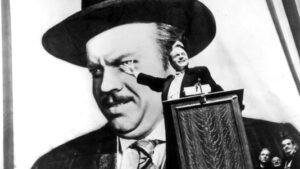 ARTH ARTHarhi 3540 |
 GEN ED |
| 02 JUNIOR |
||||
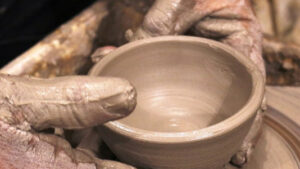 3-D STUDIO elect |
 ART ARTelect |
 ART ARTelect |
 GEN ED |
 GEN GENED |
| 01 SENIOR |
||||
 PHILM adv study 1 |
 ART ARTelect |
 FREE FREEelect |
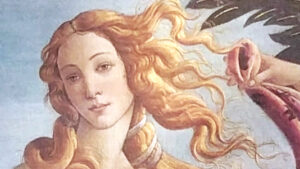 ART ARTHISTRY |
 GEN ED |
| 02 SENIOR |
||||
 PHILM PHILMadv study 2 |
 ART ARTelect |
 FREE FREEelect |
 FREE elect |
 GEN GENED |
21 hrs • Philm Concentration
12hrs Studio (take all)
 ART 3105 • Light & Lens • 3 semester hours
ART 3105 • Light & Lens • 3 semester hours
Analytical viewing of historical exemplars informs studio and location-based experimentation in lighting techniques for the still and moving image. Additionally, student projects will explore spatial rendition through lens selection. Prerequisite: ART2005 or ART2105. Offered FA22, FA24, FA26.
ART 3205 • Non-Fiction Filmmaking • 3 semester hours
Analytical viewings and collaborative, project-based learning highlight the moving image as a medium for creative non-fiction. Prerequisite: ART2005 or ART2105. Offered FA22, FA23, FA24.
ART 4005 • Digital Audio for the Moving Image • 3 semester hours
Collaborative, project-based learning emphasizes the aesthetic and rhetorical contribution of sound to the moving image. Students record, edit, and enhance, location and replacement dialogue; multi-track music; foley, effects, and atmospheres. Prerequisites: Candidacy and ART3105 or ART3205. Offered SP23, SP25, SP27.
ART 4105 • Color and Image Enhancement • 3 semester hours
Informed by the aesthetic and techniques of color grading and image enhancement, students generate and composite images. Exercises develop professional sensitivity to rhetorical meaning and impact. Prerequisites: Candidacy and ART3105 or ART3205. Offered FA23, FA25, FA27.
03hrs Cognates (choose one)
 ART 2001 • 3-D Animation Principles • 3 semester hours
ART 2001 • 3-D Animation Principles • 3 semester hours
Formerly ART 249, Computer Animation I. This course introduces students to the many areas and aspects of computer animation. Students’ model, surface, paint bump maps and displacement maps, light a CG environment, and learn to animate CG models, lights and cameras. Students are introduced to the group production environment. This course emphasizes the wide range of talents and disciplines within the CG animation field. Approved for General Education - Computer Competency. Prerequisite: ART 1106 (Drawing I).
ART 2101 • 2-D Animation Principles • 3 sem. hrs.
Formerly ART 268, Animation I. This introductory production course in basic animation techniques includes a historical overview related to current animation trends in education, industry, entertainment and independent/experimental production. It allows practical aesthetic and technical experiences in the fundamental principles and physics of motion. This class provides an analysis of action and basic physical laws through the study of movement and time. It serves as a foundation for all subsequent animation courses. This course is approved to fulfill the General Education designation of Computer Competency. Prerequisite: ART 1106 (Drawing I).
ART 4201 • Digital Visual Effects • 3 sem. hrs.
Formerly ART 400, Advanced Compositing and Visual FX. This course builds on the foundational skills students have already mastered and explores more complex compositing and visual FX techniques. Masks, pre-compositing, motion tracking, 3D FX and particles will be covered. Students will design and produce final images based on ‘real world’ situations. Students will produce five minor and two major production-quality level projects to be included on their demo-reels. Prerequisites: ART 2001 (3D Animation Principles), ART 2101 (2D Animation Principles), ART 2105 (Intro Digital Filmmaking), and any 3000-level Cinema course.
ALSO RECOMMENDED:
ENGL 3430 • Screenwriting
COMJ 3609 • Video Production
COMJ 3639 • Photojournalism
COMJ 3649 • Studio Production
COMJ 4609 • Advanced Video
COMJ 4629 • Sports Production
03hrs Advanced Study Keystone 1 (choose one)
ART 4305 • Photo Thesis Portfolio • 3 semester hours
Formerly ART455, Photo Portfolio. A survey of fine and professional artists helps students contextualize their own career aspirations. Personalized instruction and class critique prepare students to articulate a unified personal aesthetic of style and content through a cohesive portfolio of both digital and physical materials. May be repeated once for credit. Prerequisites: Candidacy and ART 3105 (Light & Lens) or ART 3205 (Non-Fiction Film). Offered SP23, SP24, SP25.
ART 4405 • Narrative Filmmaking • 3 semester hours
Formerly ART467, Film IV. Intensive study and production of a short capstone film for competitive distribution marshals cumulative proficiencies of knowledge and skill. May be repeated once for credit. Prerequisites: Candidacy and ART 3105 (Light & Lens) or ART 3205 (Non-Fiction Film). Offered FA22, FA23, FA24.
03hrs Advanced Study Keystone 2 (choose one)
ART 4205 • Internship in Digital Filmmaking & Photography • 3 semester hours.
Supervised by assigned faculty advisors, students secure professional placement relevant to both the academic discipline and their own career aspirations. Specific duties and assessment standards to be negotiated by contract in advance. Prerequisites: Candidacy, internship placement, and Art Chair approval. Prerequisites: Candidacy and permission of instructor. Offered by arrangement.
ART 4305 • Photo Thesis Portfolio • 3 semester hours
Formerly ART455, Photo Portfolio. A survey of fine and professional artists helps students contextualize their own career aspirations. Personalized instruction and class critique prepare students to articulate a unified personal aesthetic of style and content through a cohesive portfolio of both digital and physical materials. May be repeated once for credit. Prerequisites: Candidacy and ART 3105 (Light & Lens) or ART 3205 (Non-Fiction Film). Offered SP23, SP24, SP25.
ART 4405 • Narrative Filmmaking • 3 semester hours
Formerly ART467, Film IV. Intensive study and production of a short capstone film for competitive distribution marshals cumulative proficiencies of knowledge and skill. May be repeated once for credit. Prerequisites: Candidacy and ART 3105 (Light & Lens) or ART 3205 (Non-Fiction Film). Offered FA22, FA23, FA24.
ART 4505 • Special Topics in Digital Filmmaking & Photography • 3 semester hours
Intensive investigation of select technique, content, genre, or artistic movement (designated by course subtitle) informs production of advanced work in photography and/or film. May be repeated for credit as content varies. Prerequisites: Candidacy and permission of instructor. Offered occasionally.
 ART 3105 • Light & Lens • 3 semester hours
ART 3105 • Light & Lens • 3 semester hours
Analytical viewing of historical exemplars informs studio and location-based experimentation in lighting techniques for the still and moving image. Additionally, student projects will explore spatial rendition through lens selection. Prerequisite: ART2005 or ART2105. Offered FA22, FA24, FA26.
ART 3205 • Non-Fiction Filmmaking • 3 semester hours
Analytical viewings and collaborative, project-based learning highlight the moving image as a medium for creative non-fiction. Prerequisite: ART2005 or ART2105. Offered FA22, FA23, FA24.
ART 4005 • Digital Audio for the Moving Image • 3 semester hours
Collaborative, project-based learning emphasizes the aesthetic and rhetorical contribution of sound to the moving image. Students record, edit, and enhance, location and replacement dialogue; multi-track music; foley, effects, and atmospheres. Prerequisites: Candidacy and ART3105 or ART3205. Offered SP23, SP25, SP27.
ART 4105 • Color and Image Enhancement • 3 semester hours
Informed by the aesthetic and techniques of color grading and image enhancement, students generate and composite images. Exercises develop professional sensitivity to rhetorical meaning and impact. Prerequisites: Candidacy and ART3105 or ART3205. Offered FA23, FA25, FA27.
 ART 2001 • 3-D Animation Principles • 3 semester hours
ART 2001 • 3-D Animation Principles • 3 semester hours
Formerly ART 249, Computer Animation I. This course introduces students to the many areas and aspects of computer animation. Students’ model, surface, paint bump maps and displacement maps, light a CG environment, and learn to animate CG models, lights and cameras. Students are introduced to the group production environment. This course emphasizes the wide range of talents and disciplines within the CG animation field. Approved for General Education - Computer Competency. Prerequisite: ART 1106 (Drawing I).
ART 2101 • 2-D Animation Principles • 3 sem. hrs.
Formerly ART 268, Animation I. This introductory production course in basic animation techniques includes a historical overview related to current animation trends in education, industry, entertainment and independent/experimental production. It allows practical aesthetic and technical experiences in the fundamental principles and physics of motion. This class provides an analysis of action and basic physical laws through the study of movement and time. It serves as a foundation for all subsequent animation courses. This course is approved to fulfill the General Education designation of Computer Competency. Prerequisite: ART 1106 (Drawing I).
ART 4201 • Digital Visual Effects • 3 sem. hrs.
Formerly ART 400, Advanced Compositing and Visual FX. This course builds on the foundational skills students have already mastered and explores more complex compositing and visual FX techniques. Masks, pre-compositing, motion tracking, 3D FX and particles will be covered. Students will design and produce final images based on ‘real world’ situations. Students will produce five minor and two major production-quality level projects to be included on their demo-reels. Prerequisites: ART 2001 (3D Animation Principles), ART 2101 (2D Animation Principles), ART 2105 (Intro Digital Filmmaking), and any 3000-level Cinema course.
ALSO RECOMMENDED:
ENGL 3430 • Screenwriting
COMJ 3609 • Video Production
COMJ 3639 • Photojournalism
COMJ 3649 • Studio Production
COMJ 4609 • Advanced Video
COMJ 4629 • Sports Production
ART 4305 • Photo Thesis Portfolio • 3 semester hours
Formerly ART455, Photo Portfolio. A survey of fine and professional artists helps students contextualize their own career aspirations. Personalized instruction and class critique prepare students to articulate a unified personal aesthetic of style and content through a cohesive portfolio of both digital and physical materials. May be repeated once for credit. Prerequisites: Candidacy and ART 3105 (Light & Lens) or ART 3205 (Non-Fiction Film). Offered SP23, SP24, SP25.
ART 4405 • Narrative Filmmaking • 3 semester hours
Formerly ART467, Film IV. Intensive study and production of a short capstone film for competitive distribution marshals cumulative proficiencies of knowledge and skill. May be repeated once for credit. Prerequisites: Candidacy and ART 3105 (Light & Lens) or ART 3205 (Non-Fiction Film). Offered FA22, FA23, FA24.
ART 4205 • Internship in Digital Filmmaking & Photography • 3 semester hours.
Supervised by assigned faculty advisors, students secure professional placement relevant to both the academic discipline and their own career aspirations. Specific duties and assessment standards to be negotiated by contract in advance. Prerequisites: Candidacy, internship placement, and Art Chair approval. Prerequisites: Candidacy and permission of instructor. Offered by arrangement.
ART 4305 • Photo Thesis Portfolio • 3 semester hours
Formerly ART455, Photo Portfolio. A survey of fine and professional artists helps students contextualize their own career aspirations. Personalized instruction and class critique prepare students to articulate a unified personal aesthetic of style and content through a cohesive portfolio of both digital and physical materials. May be repeated once for credit. Prerequisites: Candidacy and ART 3105 (Light & Lens) or ART 3205 (Non-Fiction Film). Offered SP23, SP24, SP25.
ART 4405 • Narrative Filmmaking • 3 semester hours
Formerly ART467, Film IV. Intensive study and production of a short capstone film for competitive distribution marshals cumulative proficiencies of knowledge and skill. May be repeated once for credit. Prerequisites: Candidacy and ART 3105 (Light & Lens) or ART 3205 (Non-Fiction Film). Offered FA22, FA23, FA24.
ART 4505 • Special Topics in Digital Filmmaking & Photography • 3 semester hours
Intensive investigation of select technique, content, genre, or artistic movement (designated by course subtitle) informs production of advanced work in photography and/or film. May be repeated for credit as content varies. Prerequisites: Candidacy and permission of instructor. Offered occasionally.
Sophomore Candidacy
Overview
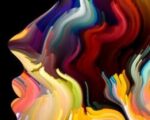 As sophomores, all Philm students APPLY FOR CANDIDACY after completing foundational coursework.
As sophomores, all Philm students APPLY FOR CANDIDACY after completing foundational coursework.
The required portfolio constitutes an important early step toward career readiness. Contact a Philm professor if you have questions. The wisest of students allow sufficient time to improve multiple submissions with faculty consultation and revision.
Candidate Information
 Name
Name
Email Address: Provide your professional email handle - not your PennWest student email. Professional email addresses are frequently coordinated with web domain names (see below). Access the Career Center's "Beginner's Guide to Professional Communication"
Phone number: (XXX) XXX-XXXX. Student ID#
Download your unofficial transcript, save as a .pdf. A minimum GPA of 2.75 is expected of all applicants.
Professional Work - Digital Portfolio
 Consistent colors, fonts, and design elements, memorably reinforce a filmmaker's identity. The successful film/video candidate thus communicates a unified personal brand by aesthetically coordinating the following items:
Consistent colors, fonts, and design elements, memorably reinforce a filmmaker's identity. The successful film/video candidate thus communicates a unified personal brand by aesthetically coordinating the following items:
A link to your personal Vimeo site. Vimeo is the preferred hosting platform for professional filmmakers. The best of sites organize projects into albums for ease of visitor navigation. Films hosted on Vimeo may be easily embedded into personal websites (below), forwarded to prospective employers, or appended to competitive applications for grants and festival entry. Vimeo is also launching a new tool to easily find and hire top-tier video professionals, so you want to update your profile and use it as a job search tool.
A professional website.
First, register a domain from a site like Domain.com, Bluehost, HostGator, or GoDaddy. Securing a web address (like brianfuller.org, for example) is like buying a plot of land. Next, build the house, with a service like Squarespace, Wix, Weebly, or WordPress.
Submit a link to the résumé page of your website. An effective online résumé is interactive, featuring links to work and awards. It should not be a .pdf or MS-Word document.
Submit a link to the gallery page of your website. A gallery of completed projects, usually organized by genre (e.g., commercial, documentary, animation) or crew position (e.g., director, cinematographer, editor). For purposes of candidacy review, your gallery must include projects completed in ART254, Introduction to Digital Filmmaking, or ART103, 4D Design.
Submit a link to the demo reel page of your website. A reel is a collection of your films' most impressive moments. As a sophomore applying for candidacy, your reel might be less than 20 seconds in length. As your coursework continues, develop a habit of saving impressive images from each class project for a combined running time of a minute in your final semester.
A business card design. Your card should complement your website and feature a professional business email address. Students often find sites such as moo.com helpful in the design and printing of identity suite elements.
Three to six drawings from ART 101, 106 & 107. Of particular interest are images which demonstrate an articulation of depth and an understanding of composition.
Competencies & Qualifications
 A link to your LINKEDIN Profile. Your profile should include a professional headshot and a customized url (the default url ends in a string of random numbers).
A link to your LINKEDIN Profile. Your profile should include a professional headshot and a customized url (the default url ends in a string of random numbers).
An essay (500-750 words) which discusses (1) two goals you have for your remaining college projects and coursework, OR (2) two characteristics that make your work aesthetically distinctive. Because essays should be free of surface errors, please employ a reliable proofreader like GRAMMARLY. It may be helpful to think of (and even to format) your essay as the letter of introduction you might send or e-mail a potential employer.
Career Development Meeting
 A conversation with Career Coach for the College of Arts, Humanities, and Social Sciences might include the following topics: on-line job search resources; freelancing and the gig economy; relocation; guild and union membership; the path from entry-level to experienced career. Enter the date of your most recent meeting with the Career Coach.
A conversation with Career Coach for the College of Arts, Humanities, and Social Sciences might include the following topics: on-line job search resources; freelancing and the gig economy; relocation; guild and union membership; the path from entry-level to experienced career. Enter the date of your most recent meeting with the Career Coach.
E-MAIL Career Development Manager Christina Moreschi (pictured at left) or SCHEDULE AN APPOINTMENT through TartanEdge.
 As sophomores, all Philm students APPLY FOR CANDIDACY after completing foundational coursework.
As sophomores, all Philm students APPLY FOR CANDIDACY after completing foundational coursework.
The required portfolio constitutes an important early step toward career readiness. Contact a Philm professor if you have questions. The wisest of students allow sufficient time to improve multiple submissions with faculty consultation and revision.
 Name
Name
Email Address: Provide your professional email handle - not your PennWest student email. Professional email addresses are frequently coordinated with web domain names (see below). Access the Career Center's "Beginner's Guide to Professional Communication"
Phone number: (XXX) XXX-XXXX. Student ID#
Download your unofficial transcript, save as a .pdf. A minimum GPA of 2.75 is expected of all applicants.
 Consistent colors, fonts, and design elements, memorably reinforce a filmmaker's identity. The successful film/video candidate thus communicates a unified personal brand by aesthetically coordinating the following items:
Consistent colors, fonts, and design elements, memorably reinforce a filmmaker's identity. The successful film/video candidate thus communicates a unified personal brand by aesthetically coordinating the following items:
A link to your personal Vimeo site. Vimeo is the preferred hosting platform for professional filmmakers. The best of sites organize projects into albums for ease of visitor navigation. Films hosted on Vimeo may be easily embedded into personal websites (below), forwarded to prospective employers, or appended to competitive applications for grants and festival entry. Vimeo is also launching a new tool to easily find and hire top-tier video professionals, so you want to update your profile and use it as a job search tool.
A professional website.
First, register a domain from a site like Domain.com, Bluehost, HostGator, or GoDaddy. Securing a web address (like brianfuller.org, for example) is like buying a plot of land. Next, build the house, with a service like Squarespace, Wix, Weebly, or WordPress.
Submit a link to the résumé page of your website. An effective online résumé is interactive, featuring links to work and awards. It should not be a .pdf or MS-Word document.
Submit a link to the gallery page of your website. A gallery of completed projects, usually organized by genre (e.g., commercial, documentary, animation) or crew position (e.g., director, cinematographer, editor). For purposes of candidacy review, your gallery must include projects completed in ART254, Introduction to Digital Filmmaking, or ART103, 4D Design.
Submit a link to the demo reel page of your website. A reel is a collection of your films' most impressive moments. As a sophomore applying for candidacy, your reel might be less than 20 seconds in length. As your coursework continues, develop a habit of saving impressive images from each class project for a combined running time of a minute in your final semester.
A business card design. Your card should complement your website and feature a professional business email address. Students often find sites such as moo.com helpful in the design and printing of identity suite elements.
Three to six drawings from ART 101, 106 & 107. Of particular interest are images which demonstrate an articulation of depth and an understanding of composition.
 A link to your LINKEDIN Profile. Your profile should include a professional headshot and a customized url (the default url ends in a string of random numbers).
A link to your LINKEDIN Profile. Your profile should include a professional headshot and a customized url (the default url ends in a string of random numbers).
An essay (500-750 words) which discusses (1) two goals you have for your remaining college projects and coursework, OR (2) two characteristics that make your work aesthetically distinctive. Because essays should be free of surface errors, please employ a reliable proofreader like GRAMMARLY. It may be helpful to think of (and even to format) your essay as the letter of introduction you might send or e-mail a potential employer.
 A conversation with Career Coach for the College of Arts, Humanities, and Social Sciences might include the following topics: on-line job search resources; freelancing and the gig economy; relocation; guild and union membership; the path from entry-level to experienced career. Enter the date of your most recent meeting with the Career Coach.
A conversation with Career Coach for the College of Arts, Humanities, and Social Sciences might include the following topics: on-line job search resources; freelancing and the gig economy; relocation; guild and union membership; the path from entry-level to experienced career. Enter the date of your most recent meeting with the Career Coach.
E-MAIL Career Development Manager Christina Moreschi (pictured at left) or SCHEDULE AN APPOINTMENT through TartanEdge.
12 hrs • GenEd Skills
ENG 101 • College Writing Skills
 3 semester hours
3 semester hours
This competency-based course is a study of the organization and development of ideas in written composition, beginning with the paragraph and proceeding to the full-length paper. In this course, students develop the writing skills needed to prepare expository writing assignments, including college-level themes and essay examinations. Concurrently, students develop the reading competencies needed for a functional understanding of the texts and other resource materials used in this course. Prerequisite: Successful completion of ENGL010 or English Department placement. Approved for General Education – Skills.
ENG 102 • Research Writing
 3 semester hours
3 semester hours
This course introduces students to the conventions of academic research writing. By practicing effective print and electronic research techniques; constructing accurate in-text and bibliographic citations; and employing document and formatting principles consistent with a discipline-specific citation style, students will produce research proposals, annotated bibliographies, and fully documented research papers relevant to their programs of study and/or academic interests. Prerequisite: ENGL101 or ENGL103. Approved for General Education - Skills.
MATH 104 • Finite Math
 3 semester hours
3 semester hours
This course provides study and experience in mathematical representations, processing, problem solving and thinking. Students analyze and solve problems in areas such as set theory, mathematics of finance, probability, and statistics. Note: Students may not receive credit for both Finite Mathematics and Mathematical Reasoning I. Approved for General Education - Skills.
ART 254 or ART 268
Demonstrative lectures, studio exercises, and collaborative tasks, expose students to rudimentary principles and practices governing formal elements of the moving image. Project-based instruction balances historical context, aesthetics, technique, and safety. This course is approved for General Education designation of Computer Competency. Prerequisites: None. Offered every semester.
 3 semester hours
3 semester hours
This competency-based course is a study of the organization and development of ideas in written composition, beginning with the paragraph and proceeding to the full-length paper. In this course, students develop the writing skills needed to prepare expository writing assignments, including college-level themes and essay examinations. Concurrently, students develop the reading competencies needed for a functional understanding of the texts and other resource materials used in this course. Prerequisite: Successful completion of ENGL010 or English Department placement. Approved for General Education – Skills.
 3 semester hours
3 semester hours
This course introduces students to the conventions of academic research writing. By practicing effective print and electronic research techniques; constructing accurate in-text and bibliographic citations; and employing document and formatting principles consistent with a discipline-specific citation style, students will produce research proposals, annotated bibliographies, and fully documented research papers relevant to their programs of study and/or academic interests. Prerequisite: ENGL101 or ENGL103. Approved for General Education - Skills.
 3 semester hours
3 semester hours
This course provides study and experience in mathematical representations, processing, problem solving and thinking. Students analyze and solve problems in areas such as set theory, mathematics of finance, probability, and statistics. Note: Students may not receive credit for both Finite Mathematics and Mathematical Reasoning I. Approved for General Education - Skills.
Demonstrative lectures, studio exercises, and collaborative tasks, expose students to rudimentary principles and practices governing formal elements of the moving image. Project-based instruction balances historical context, aesthetics, technique, and safety. This course is approved for General Education designation of Computer Competency. Prerequisites: None. Offered every semester.
21 hrs • GenEd Core
C1 • 03 hrs • Artistic Expression
 CINEMA FACULTY RECOMMENDS
CINEMA FACULTY RECOMMENDS
ARHI 105 • Overview of Western Art History • 3 semester hours
This course is an introduction and general survey of art and artists from Pre-historic times through the 20th century. Students will examine major periods and styles which have contributed to Western art through the use of slides, videos, and films in coordination with the lectures. Approved for General Education - Core 1.
C2 • 03 hrs • World Civilizations
 CINEMA FACULTY RECOMMENDS
CINEMA FACULTY RECOMMENDS
ARHI 207 • Non-Western Art History • 3 semester hours
This course introduces students to artistic cultures outside of the western tradition: Islam, Sub-Saharan Africa, India, China, Japan, and Mesoamerica. Each culture will be examined with an emphasis on major works of architecture, sculpture, painting, and crafts. Important historic, religious, and intercultural developments will be examined, along with the strong artistic connections between some of these cultures. Approved for General Education - Core 2.
C3 • 03 hrs • American Civilizations
 Studying American ideas, traditions, and institutions, prepares students to understand and engage the issues that confront citizens of this hemisphere. Choose one of many courses listed in the university CATALOG.
Studying American ideas, traditions, and institutions, prepares students to understand and engage the issues that confront citizens of this hemisphere. Choose one of many courses listed in the university CATALOG.
C4 • 03 hrs • Human Behavior
 What tools do humans use – physical, cognitive, and emotional – to adapt to their environments? While you may choose from many courses listed in the university CATALOG, the Cinema faculty recommends one the following:
What tools do humans use – physical, cognitive, and emotional – to adapt to their environments? While you may choose from many courses listed in the university CATALOG, the Cinema faculty recommends one the following:
COMM 100 • Human Communication
COMM 125 • Comm & Social Influence
JOUR 214 • Journalism & Society
CSD 125 • Psychology of Communication
C5 • 03 hrs • Cultural Diversity
 A student completing a course in Cultural Diversity and Social Pluralism will develop knowledge of diverse ways of living and thinking that are rooted in cultural, ethnic, racial, gender, and social differences. Choose one of many courses listed in the university CATALOG.
A student completing a course in Cultural Diversity and Social Pluralism will develop knowledge of diverse ways of living and thinking that are rooted in cultural, ethnic, racial, gender, and social differences. Choose one of many courses listed in the university CATALOG.
C6 • 03 hrs • Ethics
 Examine specific problems, issues, and choices, that confront individuals and society. Critically deepen your own moral values for informed decision-making. While you may choose from many courses listed in the university CATALOG, the Cinema faculty recommends one of the following:
Examine specific problems, issues, and choices, that confront individuals and society. Critically deepen your own moral values for informed decision-making. While you may choose from many courses listed in the university CATALOG, the Cinema faculty recommends one of the following:
HIST 105 • Holocaust on Film
JOUR 200 • Journalism Ethics
LIBR 106 • Information Ethics
C7 • 03 hrs • Natural Science
 Students completing natural science courses with laboratory components will develop knowledge of science, and of the fundamental elements of the scientific processes in biology, chemistry, geology, or physics. Choose one of many courses listed in the university CATALOG.
Students completing natural science courses with laboratory components will develop knowledge of science, and of the fundamental elements of the scientific processes in biology, chemistry, geology, or physics. Choose one of many courses listed in the university CATALOG.
 CINEMA FACULTY RECOMMENDS
CINEMA FACULTY RECOMMENDS
ARHI 105 • Overview of Western Art History • 3 semester hours
This course is an introduction and general survey of art and artists from Pre-historic times through the 20th century. Students will examine major periods and styles which have contributed to Western art through the use of slides, videos, and films in coordination with the lectures. Approved for General Education - Core 1.
 CINEMA FACULTY RECOMMENDS
CINEMA FACULTY RECOMMENDS
ARHI 207 • Non-Western Art History • 3 semester hours
This course introduces students to artistic cultures outside of the western tradition: Islam, Sub-Saharan Africa, India, China, Japan, and Mesoamerica. Each culture will be examined with an emphasis on major works of architecture, sculpture, painting, and crafts. Important historic, religious, and intercultural developments will be examined, along with the strong artistic connections between some of these cultures. Approved for General Education - Core 2.
 Studying American ideas, traditions, and institutions, prepares students to understand and engage the issues that confront citizens of this hemisphere. Choose one of many courses listed in the university CATALOG.
Studying American ideas, traditions, and institutions, prepares students to understand and engage the issues that confront citizens of this hemisphere. Choose one of many courses listed in the university CATALOG.
 What tools do humans use – physical, cognitive, and emotional – to adapt to their environments? While you may choose from many courses listed in the university CATALOG, the Cinema faculty recommends one the following:
What tools do humans use – physical, cognitive, and emotional – to adapt to their environments? While you may choose from many courses listed in the university CATALOG, the Cinema faculty recommends one the following:
COMM 100 • Human Communication
COMM 125 • Comm & Social Influence
JOUR 214 • Journalism & Society
CSD 125 • Psychology of Communication
 A student completing a course in Cultural Diversity and Social Pluralism will develop knowledge of diverse ways of living and thinking that are rooted in cultural, ethnic, racial, gender, and social differences. Choose one of many courses listed in the university CATALOG.
A student completing a course in Cultural Diversity and Social Pluralism will develop knowledge of diverse ways of living and thinking that are rooted in cultural, ethnic, racial, gender, and social differences. Choose one of many courses listed in the university CATALOG.
 Examine specific problems, issues, and choices, that confront individuals and society. Critically deepen your own moral values for informed decision-making. While you may choose from many courses listed in the university CATALOG, the Cinema faculty recommends one of the following:
Examine specific problems, issues, and choices, that confront individuals and society. Critically deepen your own moral values for informed decision-making. While you may choose from many courses listed in the university CATALOG, the Cinema faculty recommends one of the following:
HIST 105 • Holocaust on Film
JOUR 200 • Journalism Ethics
LIBR 106 • Information Ethics
 Students completing natural science courses with laboratory components will develop knowledge of science, and of the fundamental elements of the scientific processes in biology, chemistry, geology, or physics. Choose one of many courses listed in the university CATALOG.
Students completing natural science courses with laboratory components will develop knowledge of science, and of the fundamental elements of the scientific processes in biology, chemistry, geology, or physics. Choose one of many courses listed in the university CATALOG.
09 hrs • GenEd Distribution
D1 • 03 hrs • Humanities & Fine Arts
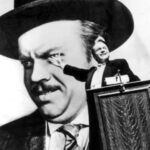 CINEMA FACULTY RECOMMENDS
CINEMA FACULTY RECOMMENDS
ARHI 354 • Introduction to Film & Video Art • 3 semester hours
Analytical viewing of exemplar works contextualizes major genres, artistic movements, theories, and national cinemas, in a broader history of the moving image. Highlighting the work of significant creative contributors fosters appreciation for the medium as an art form. This course is approved for General Education – Distribution 1.
D2 • 03 hrs • Social & Behavioral Sciences
 Upper level courses build on previous General Education instruction to deepen written communication, information literacy, and global awareness, outside the major. While you may choose from many courses listed in the university CATALOG, the Cinema faculty recommends one of the following:
Upper level courses build on previous General Education instruction to deepen written communication, information literacy, and global awareness, outside the major. While you may choose from many courses listed in the university CATALOG, the Cinema faculty recommends one of the following:
HIST 370 • The American Dream on Film
POLI 322 • Opinion & Propaganda
PSYCH 325 • Psychology of Creativity & the Arts
D3 • 03 hrs • Natural Science & Mathematics
 Upper level courses build on previous General Education instruction to deepen quantitative application of technology outside the major. While you may choose from many courses listed in the university CATALOG, the Cinema faculty recommends one of the following:
Upper level courses build on previous General Education instruction to deepen quantitative application of technology outside the major. While you may choose from many courses listed in the university CATALOG, the Cinema faculty recommends one of the following:
PHYS 301 • The Nature of Sound
PHYS 302 • The Nature of Light & Color
PHYS 313 • Digital Electronics
 CINEMA FACULTY RECOMMENDS
CINEMA FACULTY RECOMMENDS
ARHI 354 • Introduction to Film & Video Art • 3 semester hours
Analytical viewing of exemplar works contextualizes major genres, artistic movements, theories, and national cinemas, in a broader history of the moving image. Highlighting the work of significant creative contributors fosters appreciation for the medium as an art form. This course is approved for General Education – Distribution 1.
 Upper level courses build on previous General Education instruction to deepen written communication, information literacy, and global awareness, outside the major. While you may choose from many courses listed in the university CATALOG, the Cinema faculty recommends one of the following:
Upper level courses build on previous General Education instruction to deepen written communication, information literacy, and global awareness, outside the major. While you may choose from many courses listed in the university CATALOG, the Cinema faculty recommends one of the following:
HIST 370 • The American Dream on Film
POLI 322 • Opinion & Propaganda
PSYCH 325 • Psychology of Creativity & the Arts
 Upper level courses build on previous General Education instruction to deepen quantitative application of technology outside the major. While you may choose from many courses listed in the university CATALOG, the Cinema faculty recommends one of the following:
Upper level courses build on previous General Education instruction to deepen quantitative application of technology outside the major. While you may choose from many courses listed in the university CATALOG, the Cinema faculty recommends one of the following:
PHYS 301 • The Nature of Sound
PHYS 302 • The Nature of Light & Color
PHYS 313 • Digital Electronics
21 hrs • Required Art
ART 101 • 2-D Design
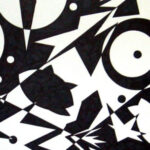 3 semester hours
3 semester hours
A course dealing with basic aspects of pictorial form. Two-Dimensional Design provides the student with a visual language for developing works of art. Problems challenge the student to deal imaginatively with the visual elements. Slides, books, and other aids are used to give the student historical information and offer insight into various problem-solving possibilities.
ART 102 • 3-D Design
 3 semester hours
3 semester hours
This course is planned to introduce the student to concepts and basic principles of designing in space and to develop his awareness of the problems and sensitivity to designing with materials.
ART 103 • 4-D Design
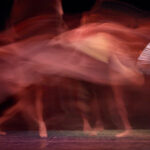 1.5 semester hours
1.5 semester hours
This course introduces concepts and basic principles of designing in time and develops an awareness of time-based problems and a sensitivity to the tools of time-based media, including video editing software. Co-requisite: ART 105 (Color).
ART 105 • Color
 1.5 semester hours
1.5 semester hours
This course presents students with a foundational overview of color for the visual artist. Basic color theory will be addressed, as will the applications of color across a variety of traditional and digital mediums. Co-requisite: ART 103 (4-D Design).
ART 106 • Drawing I
 3 semester hours
3 semester hours
Students work mainly from the nude figure with primary emphasis on the development of perception. Fundamental areas stressed are figure proportion, composition, perspective, light, and shade.
ART 107 • Drawing II
 3 semester hours
3 semester hours
This course provides a continued introduction to basic drawing problems and principles with a broader exploration of media, process, and subject matter. Increased study of both historical and contemporary artists and images provide for further discussion of fundamental drawing issues. The creative uses of various media and tools, both traditional and digital, will be explored. Prerequisite: ART 106 (Drawing I)
ART 254 • Intro to Digital Filmmaking
 3 semester hours
3 semester hours
Demonstrative lectures, studio exercises, and collaborative tasks, expose students to rudimentary principles and practices governing formal elements of the moving image. Project-based instruction balances historical context, aesthetics, technique, and safety. This course is approved for General Education designation of Computer Competency. Prerequisites: None. Offered every semester.
ART 255 • Intro to Photography
 3 semester hours
3 semester hours
Instruction familiarizes students with manual camera operation. Professional standards govern the exposure, editing, and printing of photographic images. Project-based instruction balances historical context, aesthetics, and technique. Course requires student access to a DSLR camera. Offered every semester.
ART 258 • Graphic Design Software
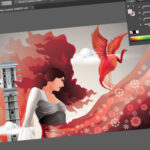 3 semester hours
3 semester hours
This course introduces industry standard graphic design software applications. It emphasizes word processing, digital illustration, image manipulation, and page layout. Projects stress the use of these programs as tools for learning the fundamentals and principles of design theory. Approved for General Education - Computer Competency. Prerequisite/Corequisite: ART 101 (2-D Design).
 3 semester hours
3 semester hours
A course dealing with basic aspects of pictorial form. Two-Dimensional Design provides the student with a visual language for developing works of art. Problems challenge the student to deal imaginatively with the visual elements. Slides, books, and other aids are used to give the student historical information and offer insight into various problem-solving possibilities.
 3 semester hours
3 semester hours
This course is planned to introduce the student to concepts and basic principles of designing in space and to develop his awareness of the problems and sensitivity to designing with materials.
 1.5 semester hours
1.5 semester hours
This course introduces concepts and basic principles of designing in time and develops an awareness of time-based problems and a sensitivity to the tools of time-based media, including video editing software. Co-requisite: ART 105 (Color).
 1.5 semester hours
1.5 semester hours
This course presents students with a foundational overview of color for the visual artist. Basic color theory will be addressed, as will the applications of color across a variety of traditional and digital mediums. Co-requisite: ART 103 (4-D Design).
 3 semester hours
3 semester hours
Students work mainly from the nude figure with primary emphasis on the development of perception. Fundamental areas stressed are figure proportion, composition, perspective, light, and shade.
 3 semester hours
3 semester hours
This course provides a continued introduction to basic drawing problems and principles with a broader exploration of media, process, and subject matter. Increased study of both historical and contemporary artists and images provide for further discussion of fundamental drawing issues. The creative uses of various media and tools, both traditional and digital, will be explored. Prerequisite: ART 106 (Drawing I)
 3 semester hours
3 semester hours
Demonstrative lectures, studio exercises, and collaborative tasks, expose students to rudimentary principles and practices governing formal elements of the moving image. Project-based instruction balances historical context, aesthetics, technique, and safety. This course is approved for General Education designation of Computer Competency. Prerequisites: None. Offered every semester.
 3 semester hours
3 semester hours
Instruction familiarizes students with manual camera operation. Professional standards govern the exposure, editing, and printing of photographic images. Project-based instruction balances historical context, aesthetics, and technique. Course requires student access to a DSLR camera. Offered every semester.
 3 semester hours
3 semester hours
This course introduces industry standard graphic design software applications. It emphasizes word processing, digital illustration, image manipulation, and page layout. Projects stress the use of these programs as tools for learning the fundamentals and principles of design theory. Approved for General Education - Computer Competency. Prerequisite/Corequisite: ART 101 (2-D Design).
06 hrs • Studio Art Electives
2-D (Choose One)
 ART 221 • Printmaking I • 3 semester hours
ART 221 • Printmaking I • 3 semester hours
An introductory course designed to explore and practice the techniques, processes, methods, and materials in printmaking, covering lithography, intaglio, relief and/or screen printing at the discretion of the instructor. Images as an art expression will also be explored and studied. Prerequisites: ART 106 (Drawing I) and ART 101 (2-D Design).
ART 331 • Painting I • 3 semester hours
A beginning course in the fundamental concepts and competencies of painting. Primary emphasis is on composition and the creation of form. Work with figure and natural objects, etc. Prerequisites: ART 106 (Drawing I), ART 107 (Drawing II), and ART 101 (2-D Design).
3-D (Choose One)
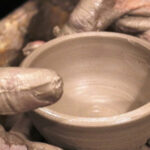 ART 211 • Metals I • 3 semester hours
ART 211 • Metals I • 3 semester hours
This is an introductory course in designing and fabricating jewelry and metal objects. Students will develop personal, creative work through the exploration of various techniques that include soldering, sawing, cold joining, forming, forging and finishing. Criticism and analysis of metalwork will be learned through formal critiques and study of historical and contemporary works. Prerequisite: ART 102 (3-D Design).
ART 216 • Ceramics I • 3 semester hours
This course introduces ceramic hand-building and wheel-throwing techniques. Both creativity and craftsmanship will be addressed in each assignment. High-fire and low temperature glazing processes will be employed as students learn to load gas and electric kilns. Students study examples of historical and contemporary ceramic art as they learn to express aesthetic ideas in their own creative work.
ART 211 • Sculpture I • 3 semester hours
Exploration in three dimensional form through the use of various materials, methods, and approaches. Emphasis on individual initiative in both the development and the execution of sculptural problems. Prerequisite: ART 102 (3-D Design).
ART 236 • Wood Furniture I • 3 semester hours
This course introduces wood as a material to develop one’s personal creativity and three-dimensional design sensibility in regard to furniture. Methods of woodworking are investigated, including the use of hand tools, portable power equipment, stationary machinery, and modes of finishing. Consideration is given to the role of furniture and wooden objects historically, functionally, and conceptually. Students design and build projects with an emphasis on creativity, craftsmanship, and their ability to problem solve. Prerequisite: ART 102 (3-D Design).
 ART 221 • Printmaking I • 3 semester hours
ART 221 • Printmaking I • 3 semester hours
An introductory course designed to explore and practice the techniques, processes, methods, and materials in printmaking, covering lithography, intaglio, relief and/or screen printing at the discretion of the instructor. Images as an art expression will also be explored and studied. Prerequisites: ART 106 (Drawing I) and ART 101 (2-D Design).
ART 331 • Painting I • 3 semester hours
A beginning course in the fundamental concepts and competencies of painting. Primary emphasis is on composition and the creation of form. Work with figure and natural objects, etc. Prerequisites: ART 106 (Drawing I), ART 107 (Drawing II), and ART 101 (2-D Design).
 ART 211 • Metals I • 3 semester hours
ART 211 • Metals I • 3 semester hours
This is an introductory course in designing and fabricating jewelry and metal objects. Students will develop personal, creative work through the exploration of various techniques that include soldering, sawing, cold joining, forming, forging and finishing. Criticism and analysis of metalwork will be learned through formal critiques and study of historical and contemporary works. Prerequisite: ART 102 (3-D Design).
ART 216 • Ceramics I • 3 semester hours
This course introduces ceramic hand-building and wheel-throwing techniques. Both creativity and craftsmanship will be addressed in each assignment. High-fire and low temperature glazing processes will be employed as students learn to load gas and electric kilns. Students study examples of historical and contemporary ceramic art as they learn to express aesthetic ideas in their own creative work.
ART 211 • Sculpture I • 3 semester hours
Exploration in three dimensional form through the use of various materials, methods, and approaches. Emphasis on individual initiative in both the development and the execution of sculptural problems. Prerequisite: ART 102 (3-D Design).
ART 236 • Wood Furniture I • 3 semester hours
This course introduces wood as a material to develop one’s personal creativity and three-dimensional design sensibility in regard to furniture. Methods of woodworking are investigated, including the use of hand tools, portable power equipment, stationary machinery, and modes of finishing. Consideration is given to the role of furniture and wooden objects historically, functionally, and conceptually. Students design and build projects with an emphasis on creativity, craftsmanship, and their ability to problem solve. Prerequisite: ART 102 (3-D Design).
12 hrs • Required Art History/Theory
ARHI 105 • Overview of Western Art History
 3 semester hours
3 semester hours
This course is an introduction and general survey of art and artists from Prehistoric times through the 20th century. Students will examine major periods and styles which have contributed to Western art through the use of slides, videos, and films in coordination with the lectures. Approved for General Education - Core 1.
≥300-level ARHI (Choose Three)
ARHI 323 • Art of the 20th Century
ARHI 324 • Art of the 19th Century
ARHI 331 • Baroque Art of the 17th Century
ARHI 332 • Art of the Renaissance
ARHI 333 • Art of the 18th Century
ARHI 341 • Classical Art
ARHI 342 • Art of Ancient Civilizations
ARHI 344 • Medieval Art
ARHI 354 • THE HISTORY OF CINEMA
ARHI 423 • Art of the Far East
ARHI 440 • Art History Seminar
ARHI 525 • NEW MEDIA IN ART
ARHI 531 • Art and Society
ARHI 535 • Art in Revolution
ARHI 537 • Art of India
ARHI 540 • EXPERIMENTAL FILM, THE VISUAL ARTS, AND CONTEMPORARY THEORY
ARHI 541 • History of Women in Art
ARHI 550 • Topics in American Art
ARHI 552 • Art of the Pharaohs
ARHI 556 • Early 20th Century Art
ARHI 557 • Late 20th Century Art
ARHI 558 • Contemporary Art
ARHI 560 • HISTORY OF PHOTOGRAPHY
ARHI 571 • History of Western Sculpture
 3 semester hours
3 semester hours
This course is an introduction and general survey of art and artists from Prehistoric times through the 20th century. Students will examine major periods and styles which have contributed to Western art through the use of slides, videos, and films in coordination with the lectures. Approved for General Education - Core 1.
ARHI 323 • Art of the 20th Century
ARHI 324 • Art of the 19th Century
ARHI 331 • Baroque Art of the 17th Century
ARHI 332 • Art of the Renaissance
ARHI 333 • Art of the 18th Century
ARHI 341 • Classical Art
ARHI 342 • Art of Ancient Civilizations
ARHI 344 • Medieval Art
ARHI 354 • THE HISTORY OF CINEMA
ARHI 423 • Art of the Far East
ARHI 440 • Art History Seminar
ARHI 525 • NEW MEDIA IN ART
ARHI 531 • Art and Society
ARHI 535 • Art in Revolution
ARHI 537 • Art of India
ARHI 540 • EXPERIMENTAL FILM, THE VISUAL ARTS, AND CONTEMPORARY THEORY
ARHI 541 • History of Women in Art
ARHI 550 • Topics in American Art
ARHI 552 • Art of the Pharaohs
ARHI 556 • Early 20th Century Art
ARHI 557 • Late 20th Century Art
ARHI 558 • Contemporary Art
ARHI 560 • HISTORY OF PHOTOGRAPHY
ARHI 571 • History of Western Sculpture
15 hrs • Art Electives
(Choose Five)
 Additional courses in art nurture interdisciplinary study and creative expression across an expansive array of media. Choose five of the many courses listed in the university CATALOG.
Additional courses in art nurture interdisciplinary study and creative expression across an expansive array of media. Choose five of the many courses listed in the university CATALOG.
Edinboro University is accredited by the National Association of Schools of Art and Design; instruction by our award-winning faculty meets the same rigorous standards as at the nation's finest art programs.
 Additional courses in art nurture interdisciplinary study and creative expression across an expansive array of media. Choose five of the many courses listed in the university CATALOG.
Additional courses in art nurture interdisciplinary study and creative expression across an expansive array of media. Choose five of the many courses listed in the university CATALOG.
Edinboro University is accredited by the National Association of Schools of Art and Design; instruction by our award-winning faculty meets the same rigorous standards as at the nation's finest art programs.
0-9 hrs • Free Electives
Variable
 Credits earned in free electives must be at or above the 300-level.
Credits earned in free electives must be at or above the 300-level.
It's wise to take electives after satisfying required courses in Gen Ed and the major.
Transfer credits for which the school has no equivalent are frequently awarded credit as free electives.
Carefully chosen electives might combine to satisfy the requirements of an academic minor.
 Credits earned in free electives must be at or above the 300-level.
Credits earned in free electives must be at or above the 300-level.
It's wise to take electives after satisfying required courses in Gen Ed and the major.
Transfer credits for which the school has no equivalent are frequently awarded credit as free electives.
Carefully chosen electives might combine to satisfy the requirements of an academic minor.
